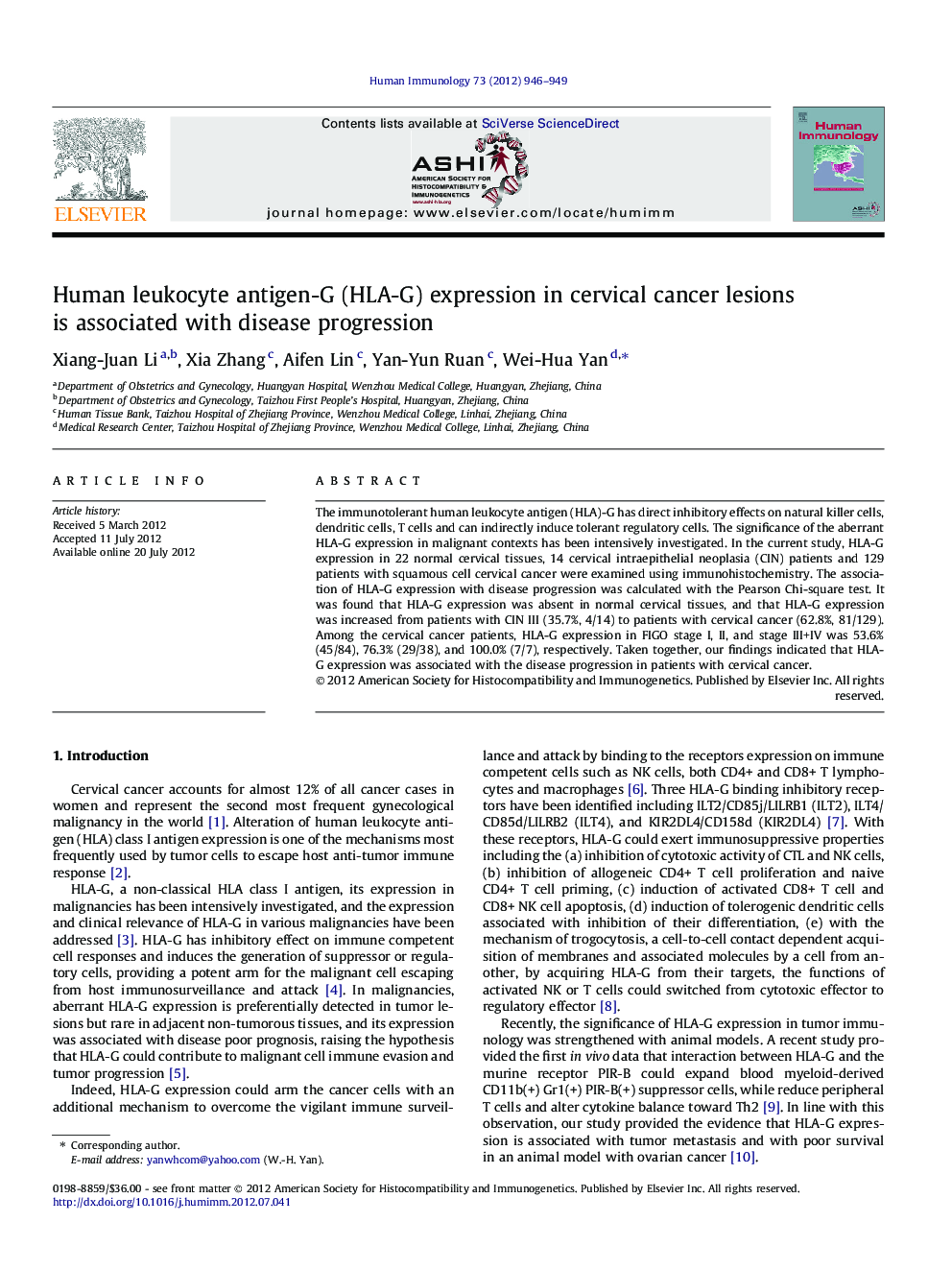| Article ID | Journal | Published Year | Pages | File Type |
|---|---|---|---|---|
| 3351341 | Human Immunology | 2012 | 4 Pages |
The immunotolerant human leukocyte antigen (HLA)-G has direct inhibitory effects on natural killer cells, dendritic cells, T cells and can indirectly induce tolerant regulatory cells. The significance of the aberrant HLA-G expression in malignant contexts has been intensively investigated. In the current study, HLA-G expression in 22 normal cervical tissues, 14 cervical intraepithelial neoplasia (CIN) patients and 129 patients with squamous cell cervical cancer were examined using immunohistochemistry. The association of HLA-G expression with disease progression was calculated with the Pearson Chi-square test. It was found that HLA-G expression was absent in normal cervical tissues, and that HLA-G expression was increased from patients with CIN III (35.7%, 4/14) to patients with cervical cancer (62.8%, 81/129). Among the cervical cancer patients, HLA-G expression in FIGO stage I, II, and stage III+IV was 53.6% (45/84), 76.3% (29/38), and 100.0% (7/7), respectively. Taken together, our findings indicated that HLA-G expression was associated with the disease progression in patients with cervical cancer.
